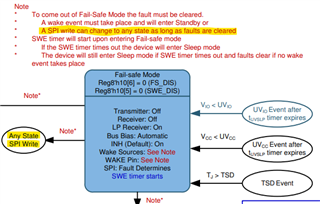Hi,
1. During fail-safe mode, register value of MODE_SEL[2:0] is kept the value which is set before any fault condition. Is my understanding correct?
2. During fail-safe mode, users have to re-write current mode value to MODE_SEL[2:0] to move to current mode from fail-safe mode. Is the understanding correct?
Best Regards, Taki


